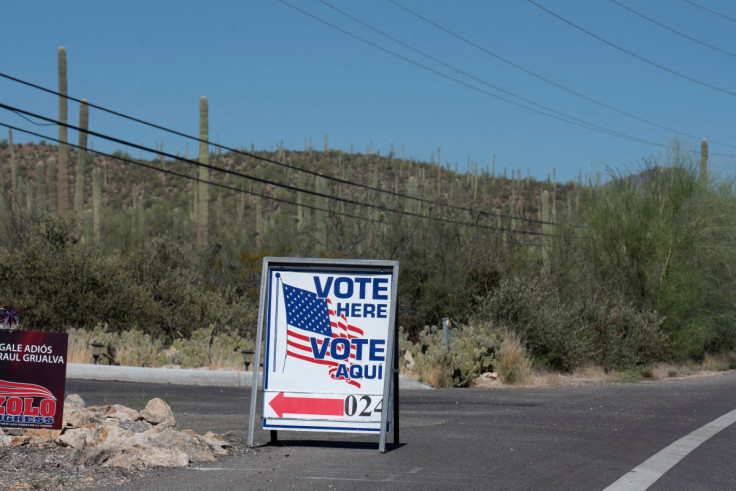
NEW YORK CITY - President Biden and former President Trump secured their respective parties' nomination last week, officially making the November elections a rematch of the 2020 race. But despite their wins being solidified, the primary season is far from over.
In fact, five decisive states will cast their ballots on Tuesday. Arizona, Illinois, Kansas, Florida and Ohio party members will head to the polls and vote on who they think should represent them even if the final result is already set.
But if the nominations are official, then why are primaries still happening? For one, every state needs to fulfill their legal electoral obligations. Another reason, although non-official, is that primaries are a great tool to help analysts and pundits get a clearer picture of the electoral landscape based on voters' behavior at the polls.
Trump is expected to easily win GOP primaries in the 5 states holding their primaries on Tuesday. Biden is expected to do the same, except in Florida, where Democrats canceled their primary and opted to award all 224 of their delegates to Biden. This is not an unusual move for a party with an incumbent in the White House seeking reelection, AP News reports.
As each candidates' campaign gets more heated, securing the Latino vote in key states, such as Arizona, increases in salience.
This week, Biden will embark on a three-day campaign swing as he tries to make progress in the Sun Belt. He will travel to Phoenix to keep pushing for Latino support, as well as bolster the computer chip manufacturing sector.
These priorities should not come as a surprise. In Arizona, more than 855,000 Latinos are expected to cast ballots this November, according to a study from the National Association of Latino Elected and Appointed Officials (NALEO). This number is a 57.5% increase from the 2016 elections.
Additionally, nearly one of every four Arizona voters is expected to be Latino (23.5%), which mirrors the Latino share in 2020 and is a 19.8% increase from 2016.
When it comes to voter turnout, a majority of Latino eligible voters are expected to make their ways to the polls. In Arizona, specifically, almost 57% of Latino voting-age citizens are projected to cast their ballots, which is about 23% of all voters in the state.
"Our projections suggest that the largest increases in Election 2024 turnout from November 2020 will mostly occur in battleground states— where sustained efforts have historically been made to engage and mobilize Latino voters," the report argues.
Biden's campaign, in particular, is placing heavy focus in Latino populations in Arizona, a state he won in 2020 by just 10,000 votes.
Bilingual campaign organizers are already in place in the state, for instance, and the campaign has opened an office in Maryvale, a major Latino community in Phoenix. The campaign has hired more than 40 staggers in Nevada and Arizona, AP News reports.
The Democratic campaign also launched the Latinos con Biden-Harris (Spanish for Latinos with Biden-Harris) initiative on Tuesday, part of the campaign's broader efforts to put in place the infrastructure to re-engage with this electorate.
In contrast, even though polls show Trump has been making inroads with Latinos, the Republican National Committee dismissed dozens of staffers after new leaders closely aligned with the former president took over last week. Those let go include people who worked at the party's community centers that helped build relationships with minority groups in some Democratic-leaning areas.
© 2024 Latin Times. All rights reserved. Do not reproduce without permission.







